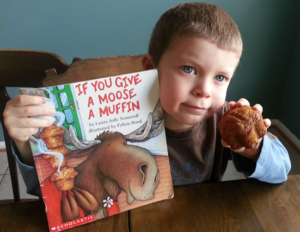A question I often hear is, “How can I homeschool while I have other little children to care for?” This is a valid question. It’s not always easy to homeschool school-aged children without babies and toddlers begging for your attention, let alone with multiple dependent children at your feet.

But, I’m here to say that it CAN be done. And not only can it be done, it can be done with grace and joyfulness. With three older school-aged children, I have gone through this stage…although it has been 4 or 5 years. When pondering this question, an older, wiser friend, who is a homeschool veteran, came to mind. Her name is Lisa, and she has successfully and gracefully homeschooled two daughters (who are both now adults and pursuing successful careers and families of their own). Lisa Donovan B.S., M.Ed is a former early intervention special educator who was surprised by the delight that she found in homeschooling her own children. She’s still in love with her husband of (almost) 28 years. Lisa was the experienced, older mom who ran the Infant Care room at my church for many years. Her love for moms with littles was evident by the way she took time to care for each mama who walked through the door. She treated us with kindness and answered all our burning new-mom questions.
I asked her if I could pick her brain about tips she has for homeschooling with littles so that we could all glean from her many years of wisdom. She graciously agreed. Here is a list of tips that Lisa wanted to share with us.
Homeschooling with young children as part of homeschooling life can definitely bring challenges. Here are a few thoughts that come to mind to remember:
Remember that each of your children are a gift from God and that you can spark delight in learning at whatever stage each child is at. Whether you’ve intended to or not, homeschooling has begun at birth in your children’s lives. You’ve already been teaching them a myriad of things. When the children in your home are a range of ages, realize that school and learning will look different based on their ages. Here’s a general continuum of learning that may be helpful.

Plan daily routines and activities for the little ones as well as the school-aged children. Here are some ideas of activities for toddlers and preschoolers.
Consider dividing schoolwork for older children into categories of work they can do independently (after brief instruction) and work they need you to be completely present for. Arrange activities for the little ones that enable you to focus more on the older children when you need to.

For the good of the entire family, remember to schedule multiple clean up times and breaks as part of your day.
If it’s helpful to you, plan out snacks and lunches (and dinners) a week in advance or have a simple, standard food plan for each day of the week. The less you have to think about during the day, the better! Older children can be involved in preparing snacks or lunches for the next day at the end of their school day.

Involve older children in interacting with their younger siblings whether that’s in having older ones read aloud to the littles or having older children play with the littles or do an activity with them while you work with an older child.

Expect plans to change as your day unfolds, especially with your tiny humans.
Build in times of solitude (quiet play/reading/drawing) for all of your children.
If you have busy toddlers and older children who need to do tasks requiring more concentration, be purposeful about scheduling ways for the older children to have times/places to be able to focus. (i.e. a separate room to study in; a time of day that is more quiet; headphones…)
Plan a rest time/nap time for the whole family so you can take at least part of that time to rest. Try to avoid doing school with older children during that time.
Be purposeful about doing things together such as going for a walk together or having a picnic snack outside.

Your day will be full–that’s a given, but instilling delight and promoting delight in learning takes work.
Take time to encourage and hug your littles as well as the big children.
Evaluate how things are going on a regular basis and tweek what you need to. Your little ones won’t always be tiny. In the midst of the full days, remember to savor each season.

Read more from Lisa on her website where you can find articles and posts about Preschool Ideas, Books she recommends, Home Management Tips, and more!


